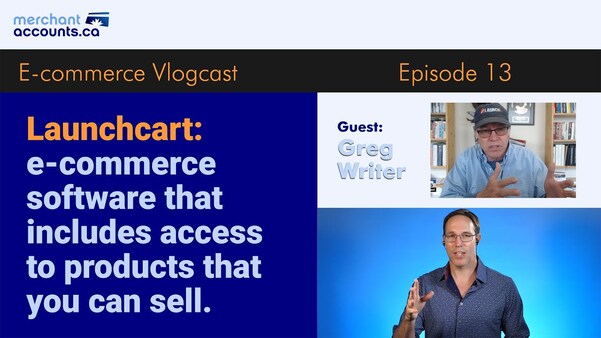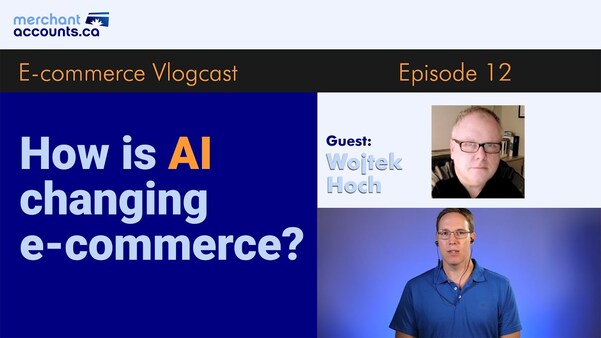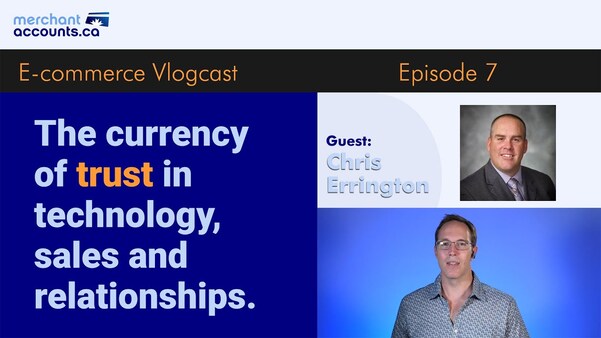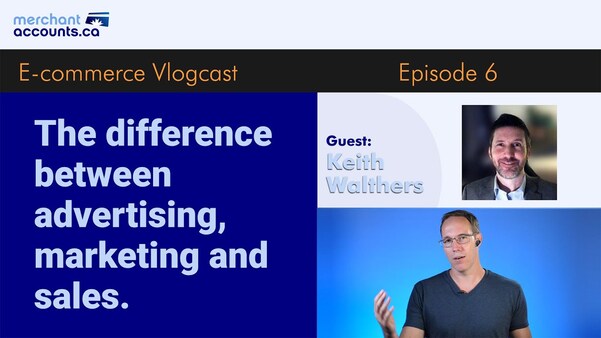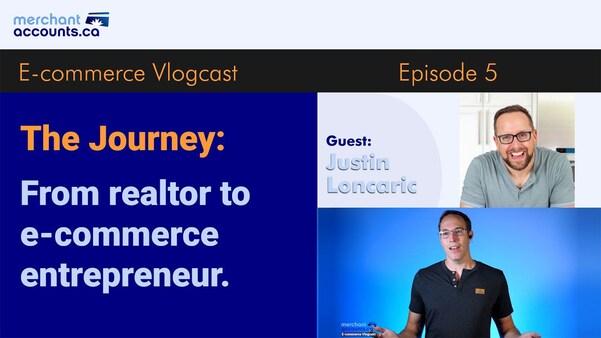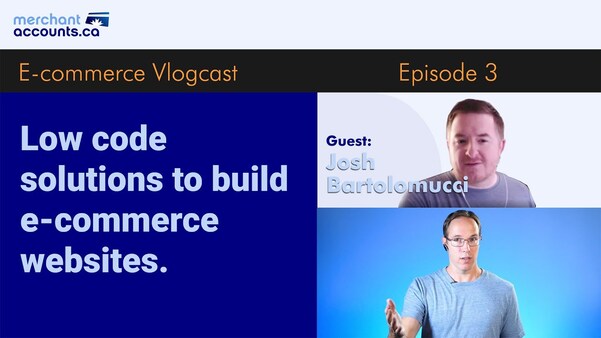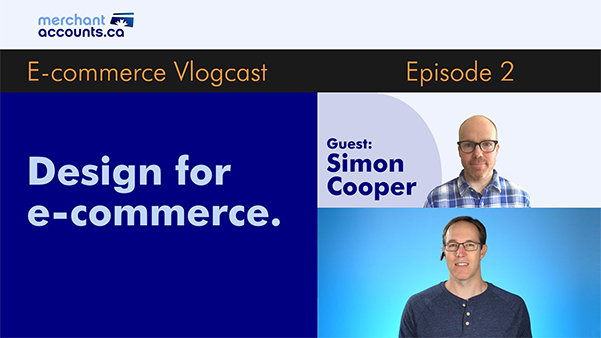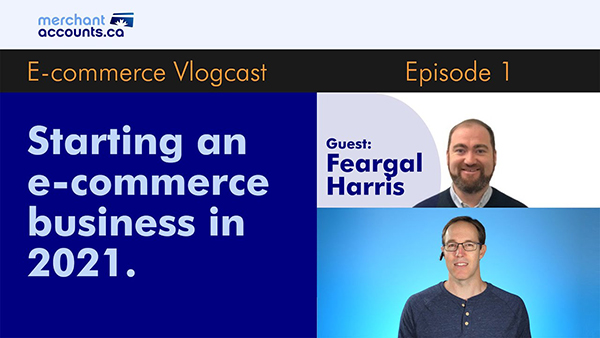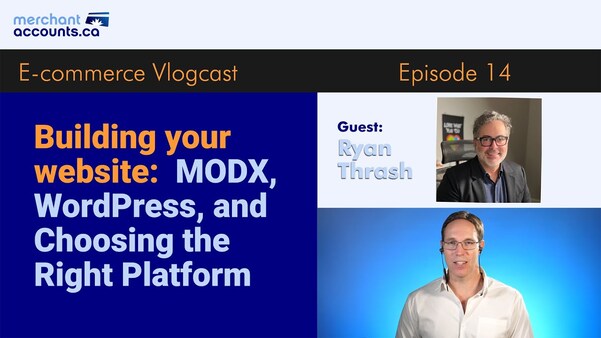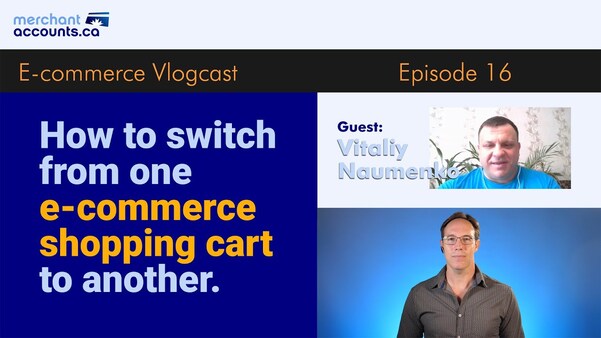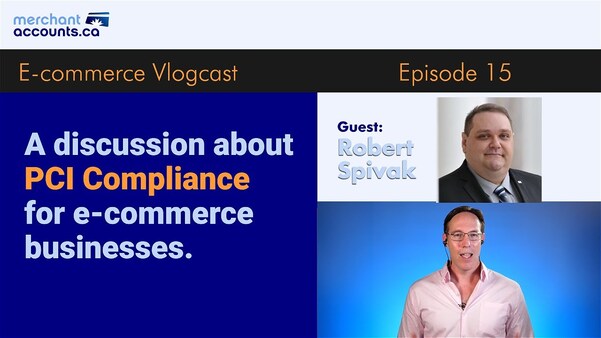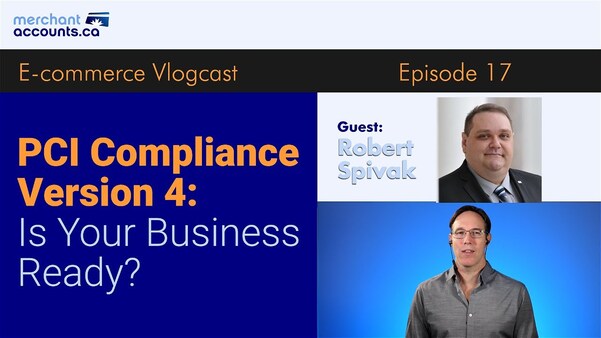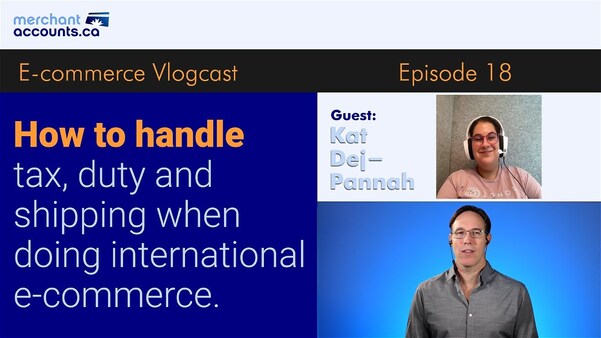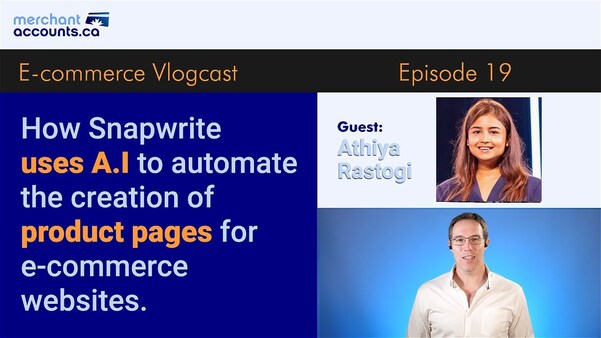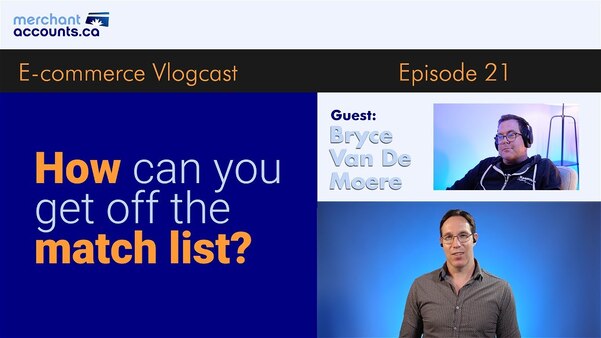February 23, 2024
by David Goodale
You can actually Win Chargebacks if you do these things right. A discussion on how to win chargebacks with Chargebacks911.
(Slightly edited from video transcript for greater readability)
David Goodale:
Hello, David here at Merchant-Accounts.ca with another episode of the podcast. Now, I can't think of a more painful source of frustration for most merchants than chargebacks. They're expensive. They take up time and resources to fight. Most frustratingly of all many merchants seem to think it's an unfair process. Today I'm speaking with David Pirtle of Chargebacks911. David is VP of enterprise engagement and is an expert on fighting chargebacks. He's worked, in the industry for many years and talked to a lot of merchants, and is knowledgeable about a diverse number of chargeback issues. I'm going to use this opportunity to pick his brain. David, thanks for joining today.
David Pirtle:
Very welcome. Glad to be here.
David Goodale:
Perfect. If it's okay with you, a lot of our visitor viewers may be familiar with this, but I'm going to start by explaining from my perspective why I think it's so hard to win chargebacks. Then I'd love to hear your comments. I always tell merchants that the card issuer has the decision-making authority in the chargeback fighting process. Unsurprisingly, they don't care about the merchant. The merchant's not their customer. The cardholder is their customer. It seems that in any case where there's any grey area, a lot of merchants would say the card issuer seems to side with the cardholder. Is that a fair and valid statement? What's your experience been in that regard?
David Pirtle:
On the surface it does seem to be that way. You have a cardholder calling in to dispute a charge or question a charge or, ask for a refund, whatever the situation may be. That is their provider, their issuer. They are at the end of the day, the issuer's customer. The issuer needs to take care of them, not just from a customer service perspective, but also from a regulatory perspective. Chargebacks were created to protect consumers from fraud. Fast forward many years later, e-commerce is a thing. Consumers are more aware of this process and they seem to do these out of convenience. Not to beat up on the issuers so much here, the issuers are very inundated with, chargeback requests or inquiries, and they have to resolve these as fast as possible, and they have to do this with a lack of information. Unfortunately, they don't have all the data that the merchant has on the transaction. The only way, well, until now the only way traditionally to get more information on the transaction is through a chargeback cycle. They are more likely to file that just to get more information on that transaction. Unfortunately, that results in the chargeback penalty fee and the merchant doing some legwork. But yes, I mean they're very customer-centric.
David Goodale:
But if I'm reading into what you're saying, like a lot of merchants believe it's a lost cause, it's not worth fighting. It sounds strongly like you wouldn't agree with that.
David Pirtle:
I do disagree with that. Now most of the in-house teams do tackle this. It's kind of like being on a treadmill. You create a business. You start working on it, you're walking along, and then you get this piece of paperwork thrown at you and it's like, okay, well I just got a chargeback. I'll respond to it. Here's the information on it, and then it's usually not reversed. Then of course, as your business grows, you start getting stacks of paperwork and you're still running your business. This is just the side project that becomes apparent and it's time consuming because it's manual. It takes a lot of time to research to try to figure out the reason. All that, complexity comes along with just reviewing and, and responding to a chargeback.
David Pirtle:
Many times, I find merchants do this activity, but they're not paying attention to the reality of what governs the chargeback process, which is all these rules, policies, and, regulations to very specifically point out what is required to represent that chargeback. Meaning what information should you be putting in there? What information just doesn't matter? A lot of times they're not putting the right information in the case, not only from an acceptance standpoint at the acquiring level because the acquirer has to receive it and then pass it to the issuer, but also from a standard, this is what I need for this reason code, or this is what I need for this type of transaction. They're just throwing, the spaghetti or pasta at the wall and seeing what sticks. Yes, traditionally it is very unsuccessful for an in-house team to take on this responsibility.
David Goodale:
I was going to get to this question later, but I'm just going to skip forward because I think you just touched on it. I was recently helping one of my merchants out. They're a very large merchant. I was reading through their chargeback response. I'll start by saying they were losing chargebacks that they should not be losing. I'll be less obscure without naming the merchant. It was an airline and people were flying and then doing a chargeback for services not received. It's like, I think you can prove the service was received. I looked at their chargeback response document and it was all in there, but it wasn't very nicely organized. My background way back in the day is in internet marketing. If you think of internet marketing, someone hits a webpage and you have just seconds to identify with the user, tell them you can help with their problem, and overcome their fear of purchasing. Not all of that translates, but some of it does because regardless of all the rules, a human is sitting in a chair somewhere reading through this, huge document. Is it fair to say that the structure and organization are really important? I'm going to ask one more question before you answer too. If you go on too long, or disorganised could that work against you?
David Pirtle:
That is 100% correct. How you structure a case should be dependent on what the card brand is, what the transaction type is, who the acquirer is, and who the issuer is that's reviewing it. We have machine learning as part of our process at Chargebacks911. When we dispute a case, we get results back, in the millions versus just a hundred or so chargebacks here and there. Our machine learning captures all of this data and then tweaks our cases depending on the results. With that in mind, the more precise you can be per the rules and regulations, the more likely that the issuing, rep is going to read that whole case. They're not going to sift through 50 pages of documents when they have about, a minute to get through this case just to find the information they want or they need to find to prove that it is a legitimate charge. The structure is a good thing to bring up. Even from an acceptance perspective, at the acquiring bank level, they all have responsibilities in this as well. They need to accept the casework in a certain structure without having to do a lot of work just so that they can pass it on to the issuer for review. Structure 100% matters.
David Goodale:
This happens so often when I have these podcast discussions, people say something and I'm like, well, that's obvious, but I never thought of it before, and you just did that to me. Customizing the response per issuer. Can you just extra expand on that because it's very interesting to me.
David Pirtle:
I'm not playing the blame game, and I'm not saying that issuers are not educated in the chargeback process, but if you stacked up the rules and regulations they would come up to your waste. Then there are hundreds of changes that happen as things go along. If you're not keeping up with those changes, you may be stuck with, a process or workflow that is defined by an old policy. For example, even if you're an expert on chargebacks and you say, okay, this particular instance warrants us to provide order history. Well, if that issuer is still working on old policies or maybe, their rep is not educated on the process, they may be looking for something completely different. If Wells Fargo's team not to say that's who it's, but if Wells Fargo team likes to see something in a case, we're going to put that in that case. It doesn't just come down to just the rules in regulations and policies. It's a human-initiated activity and a human review process. You need to be able to take that feedback. It usually does take a massive amount of data to understand this, but it does make a difference. There's a human and they're looking for something, what are they looking for? We uncovered that through our case submission and results.
David Goodale:
Because you aggregate so much data, of course, it makes it easier for Chargebacks911 to spot those trends or whatever you would call it. That makes a lot of sense. Am I right that the top of the food chain are Visa and Mastercard, and they make the rules and the issuer is supposed to follow them? Am I right about that?
David Pirtle:
Yeah and of course that's up for interpretation. Like I said, there's a lot of rules. They are regulated to follow certain rules? Then, like anyone in the cycle, they have a certain process that they have to adhere to. They have certain rules and regulations they're supposed to operate by. But again, this is human-driven. This is not technology-driven.
David Goodale:
That makes sense. The card brands update those rules, is it interchange is updated once or twice a year? How often would they update the rules for what a merchant is supposed to provide when fighting a chargeback?
David Pirtle:
I would say sporadically. You just really never know. And, really that falls on the acquirer to translate that to the merchant. But acquirers themself are inundated with chargebacks. They don't have good communication systems, which is what FI911 our sister company does for acquirers and issuers and, the financial institutions of the world we'll simplify and regulate that process of dispute management to enrich the result for the merchant. Yeah, there's just a communication loss and merchants are not even aware of these changes when they happen, so it's hard for them to even adjust to that.
David Goodale:
Well, it's true. I can tell you when I was helping this merchant out, and I'm more knowledgeable than average by far about chargebacks. I don't just work on it all day long though. And, it kind of filters back like these are the general rules. But I had not even realized there was a guideline, for example, from Visa on chargebacks, and I googled it and I'm like, okay, well this is interesting. When I got it was hard for me to understand like, is this set-in stone? How, and is it updated? it sounds like, as you said, the communication of this from the top out to the merchants, even one step above the acquirer or the processor, it's pretty tough to stand in the loop.
David Pirtle:
Yeah, it's like the telephone game.
David Goodale:
Exactly. I'm going to pick your brain on one that's coming to mind. Have a client, Nathan, and he sells a physical product to, cardholders, and he sends the product to a cardholder. This question, by the way, is going to be about arbitration or sending things to arbitration. What happened is that the customer said, hey, this thing that you sent me, it's not the size that I thought, and the merchant said, it is the size that you thought, but no problem. Happy to give you your money back. I will send you a prepaid return label, and send it back. Then, the cardholder did not do that. He touched base with them again and said, oh, no problem. If you lost the label, I will send you another one. Just send it back.
David Goodale:
It ended up happening that cardholder then did a chargeback, in the dispute resolution process, the merchant said, look, we're happy to give him his money back. He just can't keep the product and the money. That's not fair. Like, I've already sent him two shipping labels, and I will happily do a third, but he has to send the thing back. He can't charge it back and keep it. This wasn't a fraud chargeback. It was an item not as described chargeback. What ended up happening is he lost that chargeback. I thought, okay, that's silly. But I wasn't that shocked for the reasons that I mentioned earlier. But then we sent it to one of the card networks, I don't remember if it was Visa or MasterCard for formal binding arbitration. I thought, well, this is a slam dunk.
David Goodale:
Here's the communication, here's the shipping label. He can have a chargeback if he wants, but he can't keep the goods. My merchant lost the mediation, and the arbitration as well. I, later on in my research of the chargeback stuff for a different merchant, it mentioned that when you go to arbitration, I think one of the rules is you're supposed to only send it if there's new or compelling additional evidence, which there wasn't because he sent like the first go round, he sent everything as clear as day. Anyway, still lost. I don't have a structured a proper question for you. Maybe this is more of a rant, but is this common, I would've thought for sure, arbitration, you can't keep the goods and do a chargeback. Do you hear about this, and hearing it in hindsight being 20-20, does anything come to mind of what that merchant perhaps could have done differently? I'm just looking for any insight you might have.
David Pirtle:
It's a weird process. You do have the availability to represent a chargeback through the first cycle? You submit the paperwork that you see relevant, and if it is missing information or if the consumer brings it back up with new information that issuer can open it back up for a variety of reasons? Then you're stuck with what we call a second cycle chargeback or pre-arbitration, and you have the option with a lot of additional funds to push that up to an arbitration cycle and have it reviewed. But again, they're looking for something that wasn't in that case before, or something that the consumer had claimed that warranted an additional piece of information or they wouldn't have been able to open it back up?
David Pirtle:
Something else happened at that issuing make level and the merchant's responsibility is to then react to the new situation. What we find is if you represent a chargeback I don't want to say correctly, but if you represent a chargeback, in an effective way on the first cycle, it's way less likely to be opened back up on a second cycle. That's just understanding everything to do with the rules and policies and the situation. Of course, a decade of doing this that's how we tackle it. Now, you're always going to have second chargebacks. It happens to almost every single one of our clients. But that should be a really small portion. It shouldn't be like 40% of your chargebacks are being opened back up. It should be a pretty low number.
David Goodale:
Okay. That's good to know. In that case, he should have won. I'm going to give you one more example and then ask you my next question. I'm going to crunch this down to 20 seconds, I think I can do it. The client sells logistics. There was a business owner who owned a gym and during covid the gym went out of business. He had a lot of gym equipment that he owned and wanted to transport it to his home. He had a large rural property. What my client does is they provide the trucking and the driver, one of the things they asked is, would you like us to load it? The gym owner said, no, I will load it. I will strap it. The card holder opted to strap it down themselves.
David Goodale:
They drove it to the house. In the course of the shipment, it got damaged because it wasn't secured properly. My client, the merchant had an insurance policy and said to the cardholder, hey, you know what? I'm happy to try to help you. We can try and do an insurance claim. They submitted the insurance claim and the insurance company came back and said, no. You gave your client the option to professionally load and strap the equipment. They opted not to do it. They strapped it incorrectly; it got damaged as a result. We're not insuring that. Then the cardholder turned around and did a chargeback for fraud. Never heard of this logistics company. Meanwhile, they've been working for like two months on submitting this insurance claim together.
David Goodale:
They fought this chargeback and put together what I would call Mount Everest of evidence pictures. The dude standing there loading equipment on the truck just went on and on. They lost the chargeback. Then we escalated to the card brands for formal arbitration and lost, again, it's like fraudsters don't submit insurance claims or have hundreds of pictures, I'm exaggerating, but pictures of them loading equipment and all that stuff, I just couldn't believe that they lost. The question that I was about to ask you is, is it a matter of putting together the right evidence or is it the mistake of putting the evidence in the right order? Or is it, the issue that they should have written that chargeback response, like it was going to like an attention deficit, child, so it was as, as condensed and tight as possible? Like how can they lose that? I'm wondering just advice for merchants, what's more important? Is it, overwhelming evidence? Is it putting the evidence in the right order, being ultra concise? I just want to know what you think.
David Pirtle:
I think it's a little bit of all of the above. Without giving, part of our secret sauce away it does need to be structured in a certain manner. It needs to be extremely understandable and legible and very quickly gotten through to understand, the reality of the transaction. Because it's a time crunch issue, it's a policy-driven issue, it's a review process that should only take seconds to get to the point, they have what they need here based on the claim that the consumer's making. I probaly would never overwhelm them because they're doing thousands of cases, so they have a lot to get through. Structure being as precise and concise as you can per what you need in that case. Then I might get in trouble for this, but also kind of do a summary page, kind of just let that issuer or let the reviewer know what's in the package upfront. Part of what our job is as Chargebacks911 is to help these issuers understand the rules that humans at the end of this, on the other side of the world, most of the time to say, okay, look, this is the situation. I've explained it. Here's a summary per the rules. This is what is deemed necessary. It is a learning process for everyone because the rules change so often. The better that you can explain that and do it quickly, the more success you're going to have.
David Goodale:
That makes total sense. I'd like to talk about Chargebacks911 a little bit. I know that you guys do different things. I have some notes here about RDR and different things, but maybe you could tell people just a little bit about how Chargebacks911 help merchants win chargebacks.
David Pirtle:
It depends on the merchant's situation? We have merchants coming to us that are breaching thresholds. We have merchants coming to us that are just losing a lot of money. There are two aspects to a chargeback situation. One is going to be a risk. Can I even absorb more chargebacks? Am I getting on monitoring programs? Am I losing my processing? Am I getting excessive penalty fees because I'm on these programs? That's one aspect of it how risky can I be with my chargebacks? Then there's a whole other aspect to it, which is, of course, money? There are penalties, there's revenue lost in the transaction, and it's usually about three times. The value of that transaction is actually what that merchant is losing because they have acquisition costs, they have shipping goods, they have marketing, they have penalty fees, they have management fees management requirements when it comes to chargeback, you know processes. really when it boils down to it there's a lot more involved than just that transaction loss.
David Goodale:
I was getting you to tell our viewers a little bit about Chargebacks911 and just how you help people win chargebacks. If people hit your homepage or who is the right fit for Chargebacks911?
David Pirtle:
In consideration of the factors risk, or just revenue loss, we would go at this in a couple of different ways. Chargebacks911, we're broken up into three sections. One is going to be our prevention. Anyone that needs to prevent chargebacks due to risk, we have about seven or eight different notifications that can resolve that dispute before it turns into a chargeback. Then on the flip side of that, if someone is losing a lot of revenue due to chargebacks, we would help them with their chargeback management workflow. We would take over that responsibility so that they didn't have to interpret the roles, they didn't have to become experts. They can focus on running their business, and then we would be, working in the background to not only recover their revenue loss to chargebacks but also to proactively understand their situation.
David Pirtle:
And that's where the third bucket comes in, which is intelligence. We normalize and standardize all chargeback data across all acquirers. We put that into one bucket, but then we run all kinds of reporting and analytics, and we do a lot of benchmarking in our process to understand if your data is normal compared to your industry peers. If you're running your operations, this could put a lot of light on little bitty things that would influence a consumer to resolve this with their bank out of convenience or whatever it may be rather than coming to you. We do that through our benchmarking and peer analysis. We can say, okay, you're at 13% over here. Industry standards are, 5% of your refund policy could be causing this or your refund script. It's just things that merchants are not aware of that makeup about 40% of what we call merchant error. Prevention, recovery and education.
David Goodale:
On the prevention side, the best chargeback is the one that doesn't happen. Maybe you could tell me a little bit about that.
David Pirtle:
Yeah, so with the prevention, we have all acknowledged that friendly fraud is a real thing now? We were saying friendly fraud years ago, and they're like, no, this doesn't happen. But consumers are consumers, they're going to game the system. 86% of consumers admit to just following a chargeback at a convenience. You're actually in competition the, with the issuing bank at that point. Merchants need to identify ways to prevent friendly fraud outside of their fraud filter. I see as very synergistically working with fraud filters all the time because fraud filters are built for true fraud, then you're left with that consumer, it's a valid transaction, and then they went to their bank. What do you do if you don't want to hinder conversion? But do you still want to prevent chargebacks? Well, we needed post-transaction solutions, and that's where Chargebacks911 is focused on leaning on the industry, developing better tools, better transparency into the transaction.
David Pirtle:
There's now availability to get pre-emptive notifications and you can proactively give refunds, you can share information in real-time, and you could proactively cancel subscriptions. There are a lot of different things that you could do on the prevention side of things, post-transaction. This is not going to hinder your conversion. That would realistically depend on the merchant's situation. If we need to be aggressive, we're going to apply everything. If we need to be light, then a lot of my low-risk enterprise clients will take order insights and real-time information sharing or consumer clarity through MasterCard, which we facilitate. We optimize it, we help them get the right information in there to prevent their type of chargebacks in their scenario. But it's just shedding light on the transaction before it even hap turns into a chargeback. Post-transaction prevention is, is pretty awesome and it's being, and it's being added onto every year by the card brands. How can we help merchants and issuers communicate more efficiently?
David Goodale:
If somebody wanted to learn more, either get in touch with you or learn more specifically about what you're talking about, where can they go to do that?
David Pirtle:
You can always go to Chargebacks911.com. That would probably be the best way to educate yourself. We have a resource section, we have eBooks, and all of it's free. Then of course we have a service section. They can request a demo; they can request additional information. There are lots of ways that they can get in touch with us.
David Goodale:
Perfect. I know you're on the enterprise end of things. How big does a merchant have to be when it starts to make sense looking at possibly implementing Chargebacks911.
David Pirtle:
On the small side, prevention is built for everyone. If they're breaching thresholds, it's very easy for us to apply these notifications and help them remedy that problem and lower that percentage. That's built for everyone. There's not much effort as far as integration is required on the merchant's behalf. But when it comes to chargeback response, that adds a little bit of complexity to it because we would need that consumer information on the transaction that they validated, that they collected, delivery information, all that kind of stuff. I would say merchants want to get it off their plate. Around 50 chargebacks per month is when they're like, okay, I got to do something. Around 50 chargebacks per month is where we see people start to reach out to us.
David Goodale:
Perfect. I always ask this question, I know you're not prepared because it wasn't in the draft, but if you had a younger family member starting their first e-commerce business, do you have any advice, like advice that comes to mind that you would want them to know or keep in mind? It could be about chargebacks or anything. Business e-commerce related. I always get interesting titbits, so I always ask the question.
David Pirtle:
Don't accept credit cards. No, I'm kidding, accept credit cards.
David Goodale:
Ok.
David Pirtle:
No. Be prepared to accept credit cards. it's just a reality of where we're at in today's society. I don't think I've had cash in forever. But I think with, with chargebacks in particular, since that's subject, customer service is an extremely important part of if you're going to get a chargeback for fraud or if you're not if your communication is really good, you're less likely to get that chargeback. If you explain what's happening, like in your communication, list your descriptors so they know what's going to show up on their statement give them as many refund options as they possibly can get. In the situation he didn't want them to keep the product he wanted them to ship it back. If you were a high-risk merchant and you were getting too many chargebacks, I would say that's off the table for you. You can't afford a chargeback. That was an opportunity to prevent that from going into a chargeback. Customer service, depending on what level of risk you have, is very important to preventing chargebacks.
David Goodale:
That is excellent advice. David, I have to say, I learned a lot and you confirmed a lot of suspicions that I had in the back of my mind today. I think our viewers are going to find this episode particularly helpful. I want to thank you very much for joining us today.
David Pirtle:
No problem. Glad to be here and thanks, glad to help others out.
David Goodale:
Thank you.
Need professional guidance?
Contact us for a free one hour consultation.
Can I Help Lower Your Processing Fees?
If you found this content helpful, will you give me the opportunity to quote on your business?
View Rates


